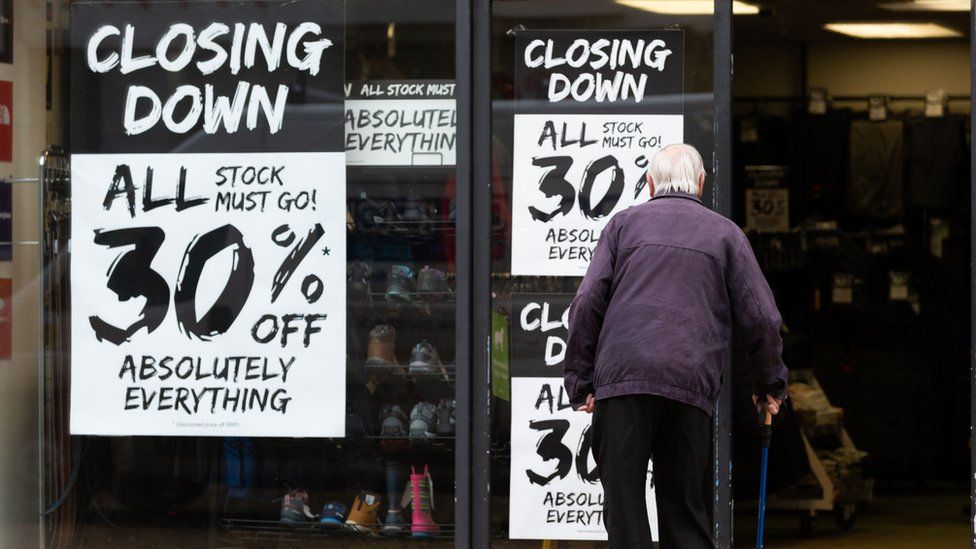ARTICLE AD BOX
 Image source, EPA-EFE/REX/Shutterstock
Image source, EPA-EFE/REX/Shutterstock
Closing down signs at a shop in Huddersfield, West Yorkshire
The government department in charge of levelling up has had controls on its spending tightened because of Treasury concerns about value for money.
Levelling Up Minister Lee Rowley confirmed to MPs the Treasury would have to sign off all new capital schemes, including building projects.
Previously the department headed by Michael Gove could spend up to £30m on such schemes without Treasury approval.
Mr Gove no longer had the "authority to sign off on a park bench", Labour said.
Asking about the move in the Commons, shadow levelling up secretary Lisa Nandy questioned whether Chancellor Jeremy Hunt believed Mr Gove had "gone rogue, because that would be a very serious thing indeed".
Mr Rowley replied that there had been no change to the Department for Levelling Up, Housing and Communities (DLUHC) budget or policies, and "no dilution of our ambition".
He accepted there would be more Treasury oversight of some future spending, saying "processes change and they also may apply at times in different ways".
He added: "We will always work closely with Treasury, we value their value-for-money focus, they value our mission and they share our mission to level up the country as a whole, and we will continue to do that."
He also told Conservative Bob Blackman that "where commitments have been made, it's my understanding they will be adhered to".
Image source, PA Media
Image caption,Michael Gove is facing new Treasury controls on his spending on levelling up capital projects
Labour MP Clive Betts, who chairs the Levelling Up, Housing and Communities Committee, said the development showed the Treasury no longer trusted the department.
The BBC understands the Treasury decision does not relate to any specific spending commitment made by the department. As well as levelling up, it oversees spending for housing, local authorities and the government's shared prosperity fund, which replaced EU structural funds.
The levelling up agenda was a central plank of the Conservatives' 2019 election manifesto. It aims to close the gap between richer and poorer parts of the country by improving services such as transport, education and broadband.
But concerns have been expressed - including by some Tories - about the system used to distribute billions of pounds in grants.
In January, Conservative West Midlands mayor Andy Street condemned the process and called for an end to Whitehall's "broken begging bowl culture".
After his region received £155m from the latest £2.1bn pot of levelling up funds, he urged ministers to justify why "the majority" of bids in the West Midlands had been rebuffed.
Rishi Sunak said his government was "completely committed to levelling up across the United Kingdom".
The PM said the process was transparent, and that areas which had been unsuccessful this time would get another chance to apply for funding in a third round.
Many local authorities have complained about the complexities and costs involved in the bidding process and delays in the allocation of funding.

 1 year ago
36
1 year ago
36








 English (US) ·
English (US) ·